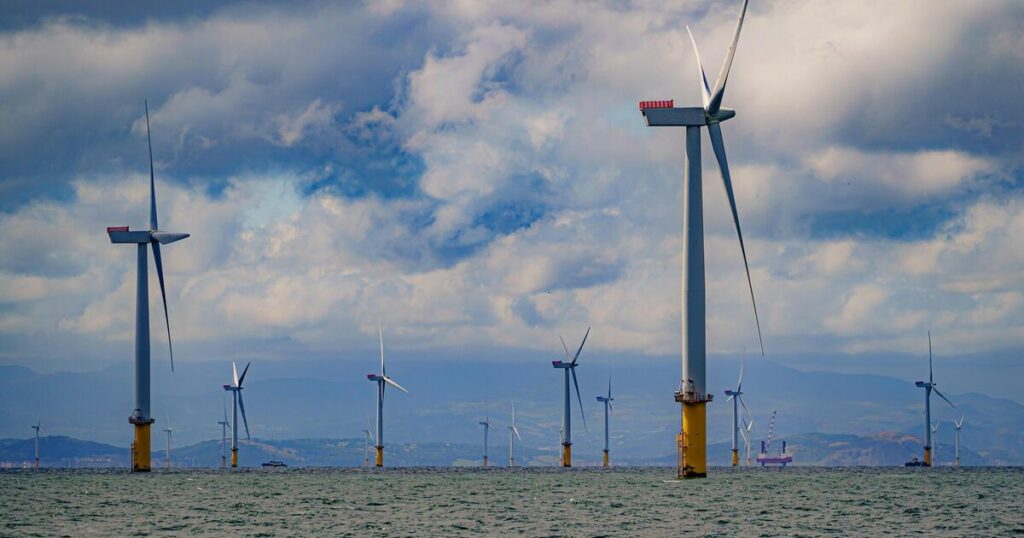In his capacity as senior lecturer in clean energy futures at UCC’s Environmental Research Institute, Dr Paul Deane gets asked lots of questions.
Dr Paul Deane of UCC’s Environmental Research Institute.
Advising that he is often asked “why Ireland is building wind and solar, when countries like China are investing in coal and are huge climate polluters,” he answers his own question: “While looking at a country is one perspective for determining who needs to take responsibility for climate change, looking at its people is another. At a global level, Ireland as a nation is a small climate polluter, but as individuals, we produce the same amount of climate pollution as an average Chinese citizen.”
By the end of this decade, China is expected to have almost 60% of the world’s renewables, according to the IEA’s Renewable Energy Report. According to Carbon Brief research, the country’s clean energy generated a record-high 44% of its electricity in May of this year, reducing its coal share to a record low of 53%.
So, while China is the world leader in installing new solar and wind capacity, it’s also the world leader The two extremes call to mind another. This one involves only every second person in sub-Saharan Africa having access to reliable electricity. Home to over one billion people, its solar capacity is roughly the size of Belgium’s, and this despite the fact that its vast deserts are ripe with potential for solar power.
Worse, more than half of its population lack access to safe drinking water. Oxfam International figures show that last year, up to 90% of water boreholes in parts of Somalia, Northern Kenya and Southern Ethiopia had entirely dried up. Climate change, as everyone knows, is the primary cause of water insecurity in Africa.
Oxfam research also throws light on the fact that the emissions of the world’s richest 1%, who tend to live climate-insulated lives, will be enough to cause heat-related deaths of more than 1.3 million people in the coming decades. According to the United Nations developing countries account for 91% of extreme weather related deaths.
Dr Paul Deane says that while it may not matter globally if Ireland moves away from fossil fuels or not, it matters for us in terms of energy security, well-being and energy affordability.
“Ireland is one of the most fossil fuel-dependent economies in Europe,” he says. “Despite progress on renewable electricity, mainly from wind power, we remain highly dependent on imported fossil fuels.
As for the price of our reliance on fossil fuels, he says that this is reflected in the high costs we pay for energy in Ireland. “It also exposes us to geopolitical volatility,” he adds. “We witnessed this during the past three years, when Russia’s invasion of Ukraine sent European gas prices rocketing. Because Ireland relies on natural gas for most of our electricity generation, we saw our electricity bills go up.
“Last year, over 80% of all the energy we used in Ireland was fossil fuel. Most of this was in the form of imported oil from the UK, the US, and Azerbaijan, and imported natural gas from the UK and Norway. This energy comes at a high cost; we spend about €1 million an hour on energy in Ireland, and most of this money leaves the state.”
Acknowledging that Ireland doesn’t have a rich resource of fossil fuels, he says: “Over the past 40 years, we have drilled 161 wells in Irish offshore waters looking for oil and gas. There have been four commercial gas discoveries and no commercial discoveries of oil.”
According to the Environmental Protection Agency’s Air Quality in Ireland Report 2023, while in compliance with current EU standards, Ireland is not on track to achieve its goal-as set out in the National Clean Air Strategy — to meet the health-based WHO air quality guideline limits in 2026. Pointing out that achieving future targets will be “very challenging,” the report lists the main pollutants of concern to be fine particulate matter (PM2.5) from solid fuel combustion, and nitrogen dioxide (NO2) from vehicle emissions/traffic.
Of the air pollution caused by fossil fuels such as coal, peat, and poor-quality timber, Dr Deane says: “The European Environment Agency estimates that 1,600 premature deaths in Ireland annually are due to air pollution from causes including cardiovascular disease and respiratory illnesses. Irish research has also linked air pollution to an increased incidence of stroke, and for the older population, higher fine particulate concentrations are associated with an increase in the prevalence of both depression and anxiety. Reducing our reliance on fossil fuels and substituting with clean energy won’t eliminate all these impacts but it will reduce them and lead to better health outcomes.”
Making the point that transitioning away from fossil fuels will be neither cheap nor easy, he says that while it will take at least two decades and significant investment, it can, if managed correctly, be affordable and worthwhile.
On the importance of investment, he says this is necessary for the building of infrastructure “such as bus and cycle lanes,” and for energy-saving projects “such as home and office insulation”.
“Investment is also required,” he says “to generate more electricity and to move this electricity around the country through a bigger electricity network, so as to replace the oil trucks that currently move oil and the gas pipelines that move gas.” Dr Deane believes the context for this investment is important, “because it is the additional cost over and above what we are spending already that matters.
“Maintaining our current fossil fuel reliance costs about €10 billion per annum,” he says. “If this money is redirected to clean energy, the additional investment required to move away from fossil fuels is between 1-2% of gross domestic product per year.”
Source link : http://www.bing.com/news/apiclick.aspx?ref=FexRss&aid=&tid=673a445f15ef4c38889e1bda0db23f3f&url=https%3A%2F%2Fwww.irishexaminer.com%2Farid-41516648.html&c=12760555475391934914&mkt=de-de
Author :
Publish date : 2024-11-17 01:55:00
Copyright for syndicated content belongs to the linked Source.
